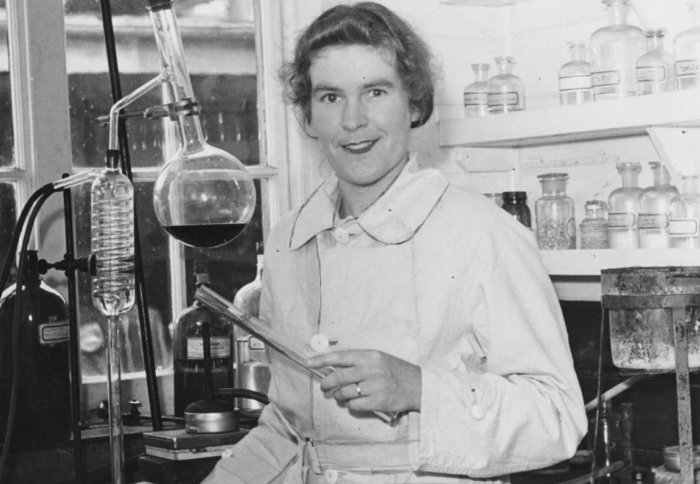International research bursaries unlock opportunities for female scientists

The awards are named after pioneering mycologist and Imperial alum Dr Greta Stevenson
Stevenson Fund winners are set to travel to global partner universities to meet and work with inspirational mentors.
Each scholar will receive £7,500 to support postgraduate research secondments at global partner universities. This year’s recipients will travel to the University of Otago and Penn State University to gain deeper insights into microbiology and climate change.
Established in 2014, the Stevenson Awards are available to women studying degrees in Physics, Chemistry, Maths, Life Sciences and Geology at Imperial. They are named after their benefactor, Dr Greta Stevenson (1911 – 1990), a distinguished botanist, mountain climber and adventurer who led the first all-women party to ascend New Zealand’s Mount Earnslaw. She arrived at Imperial in 1934, where she completed a PhD in Mycology and Plant Pathology, maintaining connections with the College throughout her life.
I look forward to seeing how Sinead and Sophie use their trips to tackle some of the fundamental global challenges that are facing society in the years ahead." Professor Simone Buitendijk
The College’s Vice Provost for Education, Professor Simone Buitendijk, said: "The Stevenson Fund continues to be a great way of unlocking our female students’ international ambitions.
"By funding opportunities to collaborate with inspirational research groups, the Imperial community continues to deepen our connections with partner institutions across the world. I look forward to seeing how Sinead and Sophie use their trips to tackle some of the fundamental global challenges that are facing society in the years ahead."
This year's Stevenson scholars
Sophie Curio
 Sophie Curio is a PhD student in the Department of Life Sciences in Dr. Nadia Guerra’s research group.
Sophie Curio is a PhD student in the Department of Life Sciences in Dr. Nadia Guerra’s research group.
Sophie will use the funding from the Stevenson Fund to work in Dr. Rachel Purcell’s lab at the University of Otago in New Zealand to investigate the role of the microbiota in chronic intestinal inflammation and tumour development.
Sophie said: "The main reason I chose to work in Dr Purcell’s lab is because her research is of high relevance for my own project. I will learn new methods and apply them to my own data, giving me the chance to advance my PhD research.
"I’m a glider pilot and Southern Alps are famous for their flying conditions, which is one of the many reasons why I have always wanted to visit New Zealand."
Sinead Lyster
 Sinead Lyster is a PhD student in Geology in the Department of Earth Science & Engineering with Dr Alex Whittaker and Professor Peter Allison. She is part of the Grantham Institute’s Science and Solutions for a Changing Planet Doctoral Training Programme.
Sinead Lyster is a PhD student in Geology in the Department of Earth Science & Engineering with Dr Alex Whittaker and Professor Peter Allison. She is part of the Grantham Institute’s Science and Solutions for a Changing Planet Doctoral Training Programme.
Sinead will be completing her placement at Penn State University in the Department of Geosciences, with Professor Liz Hajek. The placement will be focussed on researching the sensitivity of rivers to climate change.
Sinead said: "Working with Professor Hajek at Penn State University will allow me to apply my ‘blue skies’ research to problems of societal interest.
"With my research on sediment transport and hydrology in the warmer geologic past, and Professor Hajek’s expertise on sensitivity of river landscapes, we will investigate what underlying factors determined the response of various palaeo-rivers to warming. Then, we will predict the response of modern rivers to ongoing warming, which is crucial as a large proportion of the population live adjacent near rivers."
Article text (excluding photos or graphics) © Imperial College London.
Photos and graphics subject to third party copyright used with permission or © Imperial College London.
Reporter
Murray MacKay
Communications Division